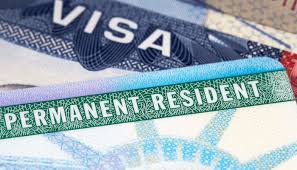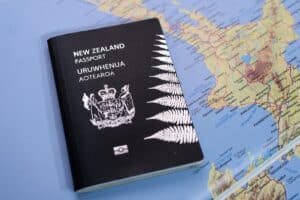Studying abroad is more than just an academic pursuit. For many, it’s the first step toward securing a better future. One of the biggest motivations for international students is the opportunity to gain permanent residency (PR) in the country where they study.
Permanent residency after studying allows you to work, live, and enjoy the benefits of being a long-term resident in a country. Countries worldwide offer different pathways to PR for international graduates, but not all routes are created equal.
We are on Twitter(X). Follow us for latest updates on scholarships, fellowships and internships for international students @scholarjobguide
— Scholarship Job Guide (@scholarjobguide) January 20, 2025
Choosing a country with clear and accessible PR pathways can make a significant difference in your post-graduation journey. Some countries have immigration policies that favor international students, recognizing the skills, diversity, and economic contribution they bring. These countries make the transition to permanent residency smoother, whether through skilled migration programs, work experience, or specific graduate visas.
This guide highlights 20 countries with some of the easiest PR pathways after studying. By understanding their requirements and policies, you can plan your studies and career more strategically.
If you’re considering studying abroad and want to secure PR after graduation, this list is your roadmap.
Join Scholarship Job Guide Telegram Group for latest updates on scholarship, jobs abroad and visa guide
Table of Contents
Toggle1. Canada
Canada consistently ranks as one of the best countries for international students seeking permanent residency after studying. Its immigration system is designed to retain skilled graduates through programs like the Post-Graduation Work Permit (PGWP) and the Express Entry System.
According to data from Statistique Canada, for example, of the international students who obtained their first study permit between 2000 and 2004, 21% became permanent residents within five years. As of the most recent Immigration Refugees and Citizenship Canada (IRCC) data from November 2023, 62,410 international students (technically international graduates) became permanent residents of Canada
Pathway to PR
After completing your studies, you can apply for a PGWP, which allows you to work in Canada for up to three years. Work experience gained during this period can quality you to apply for permanent residency under programs like the Canadian Experience Class or Provincial Nominee Programs (PNPs). Check out Work in Canada With the Farm Worker Program | Apply Now For Limited Openings
Why It’s Easy
Canada values international graduates and awards points for education and work experience gained in the country, making PR applications highly favorable.
Key Requirement
Language proficiency in English or French is crucial.
2. Australia
Australia is another favorite among international students, thanks to its world-class education system and welcoming immigration policies.
Pathway to PR
After studying, you can apply for the Temporary Graduate Visa (subclass 485), which lets you work and gain local experience.
This work experience can lead to permanent residency through the General Skilled Migration (GSM) program or state-specific nomination schemes.
Why It’s Easy
Australian immigration policies award points for education, age, and work experience gained in the country. This points-based immigration system favors international graduates.
Certain fields like healthcare, IT, and engineering are in high demand, further easing PR approval.
Key Requirements
Choose a course in demand on Australia’s Skilled Occupation List (SOL).
3. Germany
Germany offers affordable, high-quality education and a straightforward path to permanent residency for graduates. According to a survey by the government-funded German Academic Exchange Service (DAAD), around 50% of foreign students remain in the country after graduating.
Pathway to PR
Germany’s Job Seeker Visa allows international graduates to stay for up to 18 months after completing their studies to find a job.
Once employed, you can transition to a work visa and eventually apply for PR after two years of full-time work.
Why It’s Easy
Germany’s strong economy, focus on innovation and need for skilled professionals, especially in STEM fields, makes it favorable option for international graduates.
Key Requirement
Knowledge of German (B1 level or higher) is often necessary.
4. New Zealand
New Zealand is known for its welcoming attitude toward international students and its emphasis on retaining talent.
According to data from the New Zealand Ministry of Business, Innovation and Employment (MBIE), about 30% of fee-paying international students in New Zealand transition to work and/or permanent residency after completing their studies. This means roughly one-fifth of international students gain permanent residence in the country.
Pathway to PR
After studying, you can apply for a Post-Study Work Visa, which allows you to gain local work experience for up to three years.
Skilled workers are highly valued, and graduates from fields like healthcare, engineering, and IT are in demand. These field can make you eligible for permanent residency under the Simplified Skilled Migrant Category (SMC).
Why It’s Easy
Permanent residency pathways prioritize graduates with qualifications in fields listed on New Zealand’s Long-Term Skills Shortage List.
Key Requirement
Meet the minimum points threshold under the SMC points system.
5. United Kingdom (UK)
The UK’s Graduate Route makes it easier for international students to transition to work and eventually permanent residency. Recent data from the UK government shows that a significant portion of international students transition to permanent residency after studying in the UK, with over 70% of settlement applications being granted for those who initially entered on a student visa.
Pathway to PR
After completing your degree, you can apply for the Graduate Route Visa, which allows you to work for two years (three years if you’re a PhD graduates).
During this time, you can find employment, gain work experience and switch to a Skilled Worker Visa, which can lead to indefinite leave to remain (PR) after five years. Check out
Why It’s Easy
The UK has removed many barriers, including job sponsorship requirements, making it easier for graduates to secure work.
Key Requirement
Securing a job that meets salary and skill thresholds is essential.
6. Ireland
Ireland’s booming tech and healthcare industries make it an attractive destination for international graduates seeking PR.
Pathway to PR
After graduation, students can apply for the Third Level Graduate Program, which provides up to two years to find employment.
If you secure a job during this period, you can transition to a General Employment Permit or Critical Skills Employment Permit, leading to permanent residency.
Why It’s Easy
Ireland actively encourages international talent to settle permanently, especially in high-demand industries.
Key Requirement
Choose a course in a field experiencing labor shortages.
7. Sweden
Sweden offers a highly inclusive education system and excellent permanent residency opportunities for international students.
Pathway to PR
After completing your studies, you can apply for a six-month residence permit to search for a job.
With permanent employment, you become eligible for permanent residency after four years of residence.
Why It’s Easy
Sweden values diversity and offers generous work rights to international graduates.
Key Requirement
Basic knowledge of Swedish language and culture is beneficial.
8. United States (USA)
Though challenging, the USA offers clear paths to permanent residency for students with determination.
Pathway to PR
In the USA, international graduates on an F-1 visa can work under the Optional Practical Training (OPT) program after completing their studies. STEM graduates get an additional 24 months of work authorization. During this time, you can secure sponsorship for an H-1B visa, which can lead to a Green Card (PR). Check out
Why It’s Easy
Fields like tech and engineering have a high demand, improving chances for PR.
Key Requirement
Employer sponsorship is usually necessary.
9. Netherlands
The Netherlands combines excellent education with strong job markets in fields like technology and business.
Pathway to PR
Graduates can apply for the Orientation Year Visa to search for a job. After five years of residence, including work, you can apply for PR.
Why It’s Easy
The Netherlands offers tax benefits for highly skilled workers, encouraging long-term settlement.
Key Requirement
Learning Dutch is an asset for integration and PR approval.
10. Singapore
Singapore offers excellent PR opportunities for students in its strategic industries.
Pathway to PR
International graduates from recognized institutions can apply for the Long-Term Visit Pass to seek employment.
Once you secure a job, you can work towards PR through the Professional, Technical, and Skilled Workers Scheme (PTS).
Why It’s Easy
Singapore values skilled talent in finance, technology, and healthcare.
Key Requirement
Exceptional academic and professional achievements improve your chances.
11. Malaysia
Malaysia is an emerging study destination with attractive residency options for skilled professionals.
Pathway to PR
After graduating, students can seek employment in critical sectors such as IT, healthcare, and engineering.
Malaysia’s Residence Pass-Talent (RP-T) scheme is an attractive option for international graduates. Residency can be pursued through the Malaysia My Second Home (MM2H) program or through long-term employment.
Why It’s Feasible
Graduates working in high-demand industries or those with substantial professional achievements can qualify for PR.
Key Requirement
Proof of stable income and contribution to the Malaysian economy enhances eligibility.
12. Japan
Japan’s education system and robust economy make it a promising destination for international students.
Pathway to PR
Graduates can work in Japan with a Specified Skilled Worker Visa or other employment visas. After ten years of residence (or one year for highly skilled professionals), they can apply for PR.
Why It’s Easy
Japan has streamlined its PR process for skilled workers, especially in engineering, IT, and healthcare.
Key Requirement
A stable job and Japanese language proficiency (N2 level or higher) enhance eligibility.
13. China
China is becoming increasingly popular for international students due to its growing economy and global education partnerships.
Pathway to PR
Graduates can apply for work visas and gain PR through the Permanent Residence for Foreigners Program after five years of residence. Special consideration is given to skilled workers in high-demand industries. Check out Chinese Government Scholarship for International Students at SWUFE
Why It’s Easy
China is actively seeking to retain international talent to support its innovation-driven economy.
Key Requirement
A degree from a Chinese university and employment in a key sector improve PR chances.
14. UAE (United Arab Emirates)
The UAE is increasingly offering attractive residency options for skilled graduates and professionals.
Pathway to PR: After studying, graduates can apply for long-term residency through the Golden Visa Program, particularly if they excel in fields like medicine, engineering, or technology.
Why It’s Feasible: The UAE is investing in retaining international talent to drive economic growth.
Key Requirement: High academic or professional achievements improve eligibility for the Golden Visa.
15. Saudi Arabia
Saudi Arabia is expanding its education and employment opportunities for international talent.
Pathway to PR
After studying, graduates can transition to long-term residency through the Saudi Green Card Scheme or Privileged Iqama Program, especially if employed in priority sectors.
Why It’s Easy
The country’s Vision 2030 initiative is creating more pathways for international students and professionals to stay.
Key Requirement
Employment in industries such as energy, healthcare, or IT is advantageous.
How to Choose the Right Country for Permanent Residency After Studying
- Evaluate Visa Policies: Understand the stay-back options and PR pathways in each country.
- Consider Job Markets: Choose a country with strong demand for professionals in your field.
- Research Costs: Factor in the cost of living and tuition fees.
- Check Language Requirements: Some countries require proficiency in the local language.
Frequently Asked Questions About Permanent Residency After Studying
Which countries are easiest for international students to gain permanent residency?
Canada, Australia, and New Zealand are considered some of the easiest countries for international students to gain permanent residency due to their clear and structured PR pathways for graduates.
What is a Post-Graduation Work Visa, and how does it help in obtaining PR?
A Post-Graduation Work Visa allows international students to work in the country after completing their studies. Gaining work experience under this visa can make you eligible for PR programs like Express Entry in Canada or Skilled Migration in Australia.
Do all countries require work experience for PR after studying?
Not all countries require work experience. Some, like Canada, allow direct application for PR if you meet specific education and language criteria, while others, like Germany, require work experience in a relevant field.
Can I apply for permanent residency during my studies?
Most countries require you to complete your studies before applying for PR. However, some countries allow students to start the process while on a work visa post-graduation.
Are language requirements mandatory for PR after studying?
Yes, most countries require proficiency in their official language(s). For example, Canada requires proficiency in English or French, while Germany may require knowledge of German for specific PR programs.
Is it easier to get PR in smaller or less popular countries?
Yes, smaller countries with a lower population or less competition often have more relaxed immigration policies. For example, Ireland and Finland offer simpler pathways compared to larger nations like the USA.
What happens if I can’t find a job after graduation?
In countries like Canada and Germany, you are given a grace period (e.g., 18 months) to find employment. If you fail to secure a job, you may need to leave the country unless you qualify for other visa options.
Can I bring my family with me while applying for PR?
Yes, most countries allow international graduates to include their spouse and dependents in their PR applications, provided you meet the financial and legal requirements.
Do all fields of study lead to easy PR opportunities?
No, certain fields like healthcare, IT, and engineering are more in demand globally and often lead to easier PR opportunities. Research your target country’s in-demand occupations before choosing your course.
What risks should I be aware of while pursuing PR after studying?
Common risks include:
- Failing to meet language proficiency or work experience requirements.
- Visa expiration before securing a job.
- Changes in immigration laws that could affect your PR eligibility.
Can I apply for PR if I studied a short-term course?
It depends on the country. For example, Canada requires a minimum 8-month full-time study program, while Australia may have specific requirements for course duration and qualification levels.
Do I need a job offer to apply for PR after studying?
Some countries, like New Zealand, require a job offer in a relevant field to apply for PR, while others, like Canada, allow PR applications through points-based systems even without a job offer.
Can I change my study visa to a work visa directly?
Yes, many countries allow this. For example, in Germany, you can apply for an 18-month job seeker visa after graduating, and in Canada, you can switch to a Post-Graduation Work Permit.
Are there age restrictions for PR after studying?
Age restrictions vary by country. For instance, Australia awards higher points for applicants under 33, while Canada doesn’t have strict age limits but reduces points after age 30.
How does permanent residency differ from citizenship?
Permanent residency gives you the right to live, work, and study in the country indefinitely, but you don’t have voting rights or a passport. Citizenship includes full rights, including voting and holding a passport.
Can I apply for PR with a part-time or freelance job?
Some countries require full-time employment to qualify for PR. However, others, like Canada, count part-time or self-employment if it meets the minimum hours and income requirements.
How long does it take to get PR after studying?
The timeline varies by country. For example, in Canada, you may be eligible immediately through Express Entry, while in countries like Ireland, you need to live and work there for five years.
What happens if my PR application is rejected?
If your application is rejected, you may reapply after addressing the issues or consider alternative pathways, such as skilled migration programs or employer-sponsored visas.
Can I apply for PR in a different country after studying elsewhere?
Yes, but this depends on the country’s immigration policies. For instance, studying in the UK won’t directly qualify you for PR in Canada, but you can apply under Canada’s skilled worker programs if eligible.
What are the costs associated with applying for PR?
Costs vary widely. For example, Canada’s PR application fees are about CAD 1,365 for a single applicant, while Australia’s skilled visa applications can exceed AUD 4,000. Additional costs include language tests, medical exams, and police clearances.
Conclusion
Securing permanent residency after studying abroad is achievable in several countries, but it requires strategic planning and adherence to immigration guidelines.
When choosing your study destination, consider not just the quality of education but also the pathways to PR and the demand for skilled professionals in your field.
Countries like Canada, Australia, and Germany prioritize retaining international talent, making them ideal for students with long-term settlement goals.
By understanding the PR processes and preparing early, you can turn your study-abroad experience into a stepping stone for a prosperous future. Choose wisely, follow the steps, and take advantage of the opportunities these countries offer for international graduates.
Join Scholarship Job Guide Telegram Group for latest updates on scholarship, jobs abroad and visa guide






